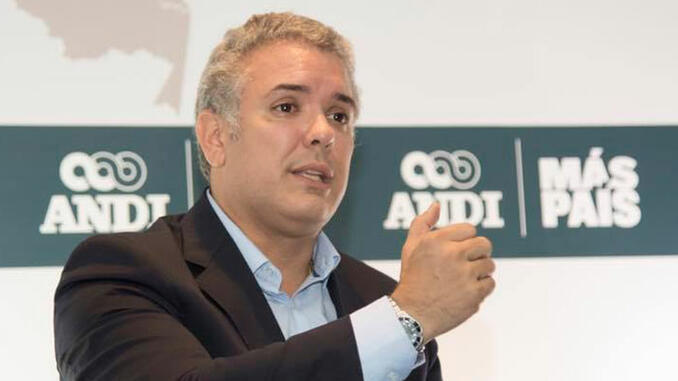
Columbia—South America’s oldest democracy—goes to the polls on June 17th to elect a new president. Given the position of the frontrunner in the race, Iván Duque, the situation looks to impact the 2016 peace accords with the Revolutionary Armed Forces of Colombia, otherwise known as F.A.R.C., that have brought relative peace for the first time in a half century to Columbia. Columbia’s current president, Juan Manuel Santos, won a Nobel Peace Prize for staking his presidency on the negotiations to bring peace. However, nearly three-quarters of Columbians, according to a recent Gallup poll, believe the implementation of the peace accords are headed in the wrong direction. Many feel that the terms of the agreement were too lenient on F.A.R.C. rebels, particularly with their history of human rights violations.
Iván Duque is one of those who believe the accords are too lenient. He is known for modeling himself after former president Álvaro Uribe who pitted himself against the agreement. Duque also feels the lack of prosecution of F.A.R.C. rebels is galling. He believes it is shocking that members of F.A.R.C. will be seated in congress without acknowledging, or being punished for, their crimes against humanity. Duque promises that if he is elected, major F.A.R.C. kingpins will not take office. There is some politics in that statement. If he wins, he will not become president until August, after F.A.R.C. members come to office.
Supporters of the accords are concerned about what kind of impact Iván Duque will have on the accords if he indeed replaces Santos. Even though the accords are flawed, it is unlikely that they could even be replaced any time soon. It took four years to negotiate the final terms. Enforcement of the agreements with F.A.R.C. of the accords will remain a point of difficulty no matter who is elected. Some former F.A.R.C. elements are still growing coca plants even though it is forbidden by the agreement. Weening F.A.R.C.-supporting farmers off coca to legal crops are and will remain a key focus.
Often when it comes to ending the horrors of warfare, and in particular wars that have raged for decades, the concept of peace and justice get confused. They are two concepts that are not actuality linked. If one side pursues justice too rigidly, they will find they will not achieve peace. And if they pursue peace too literally, they will find the lack of justice will come back to haunt them. There has to be a balance between the two which at times can be pretty ugly. For this upcoming election, Iván Duque’s side on this issue looks to prevail, and there may be more flexibility under the surface than may seem. The F.A.R.C.’s leadership is in a position of weakness. They are old and out of touch with the very people they claim to have been fighting for. In the March parliamentary elections the group won less than one percent of the vote. Peace, in Columbia, at least for now, seems to be stronger than the desire to war.
